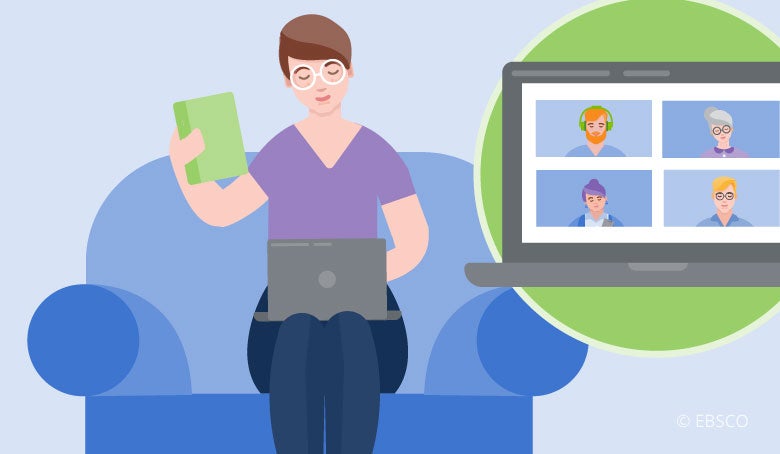In the best of times, libraries are a haven and a sanctuary. But during a global pandemic, libraries find themselves in a new role — second responders. And they are rising to the challenge.
Library staff normally provide books, tutoring and social services. Now they are helping communities emerge from the crisis and recover economically. And in doing so, they are proving themselves essential.
We’ve been here before. After the economic recession of 2008, libraries helped people get back on their feet by providing digital literacy classes, small business resources and career building assistance.
This time, libraries face additional hurdles. Our physical buildings are closed. In some cases, staff are furloughed and online library services are being handled by a skeleton crew.
Despite that, libraries are doing inspiring work. Chatham County Library in North Carolina is launching an online workforce development initiative based on the Entreprenerial Learning Initiative. Working with partners at Central Carolina University, they are offering free spots in a class on developing an entrepreneurial mindset. Using LibraryAware, the library is sending a series of emails to inspire and motivate people to take the class and arm themselves with new skills to launch their businesses once the country recovers. These email templates will be available soon for all LibraryAware subscribers.
Library staff are also using social media, email and video to reach new audiences. Digital marketing breaks down the library building’s physical barrier and makes it possible for anyone to benefit from library programming. Plus, social media reaches people who may not have interacted with a library in years.
The Davie County Public Library uses Twitter to promote their online tea and book chat discussions. The DC Public Library does daily live story times in several languages and hosts live author talks, personal finance workshops, and a virtual “mending” meetup, all on Facebook.
Libraries are seeing an increase in requests for personalized reading recommendations, as readers look for new ways to ask librarians for suggestions. Weymouth Public Library hosts “The Librarians Recommend: Live!” each week on Facebook, offering on-the-stop book recommendations. Libraries provide these services and more every day, giving their community the tools they need to navigate a new reality, and helping to combat the fear and isolation that come with the pandemic.
Librarians are often humble about their own work, but now is not the time to stay quiet.
Librarians are often humble about their own work, but now is not the time to stay quiet.
Libraries are also a vital source of truthful information about COVID-19. It’s no surprise that there are lots of rumors and false safety tips circulating on the internet. Libraries are stepping up to provide the public with accurate information about how to protect themselves. The East Lansing Public Library is one of hundreds across the country that created a webpage with COVID-19 facts and resources to help the community check on the credibility of information. Many libraries continue to answer questions by phone, on social media and through chat. They are helping community members figure out how to vet information, evaluate medical tips and determine if sources are trustworthy. This level of commitment to information literacy is saving lives and calming fears.
Now, libraries must begin telling their own story and talking about the value their work contributes to society. Stakeholders need to know that libraries have been continuing to provide essential services from home. As libraries extend services to support their community, they should be reaching out to the press and writing about their efforts on their own blogs, in social media posts, and through emails to their cardholders. Librarians are often humble about their own work, but now is not the time to stay quiet. As local governments face decreasing tax revenue, library budgets are at risk. Now is the time to shine the spotlight on the library’s value to the community.
The El Dorado County Library made the pages of Fast Company after the library used its 3D printers to create face shields for healthcare workers. The same article mentions how the Columbus Metro Library turned their parking lots and sidewalks into internet access spots.
And, to ensure a stable future, libraries must also focus on building brand loyalty. It is more important than ever to nurture a loyal audience of users and supporters who are willing to speak about the value of the library. Libraries must build their email subscriber lists and communicate regularly. The next time there is a crisis, this audience will remember the library as a trusted place to find information, encouragement and comfort.
Libraries are adaptive and flexible. And they’ve proven something to the world — they're not stodgy, traditional institutions. Rather, they are vital community centers staffed with smart, dedicated professional experts driven by one desire — to make the world a better place. I don’t know about you, but I’m proud to serve and support libraries in that quest.
